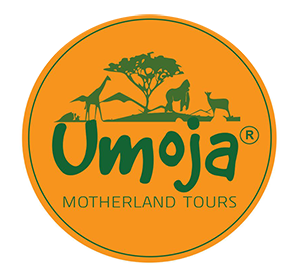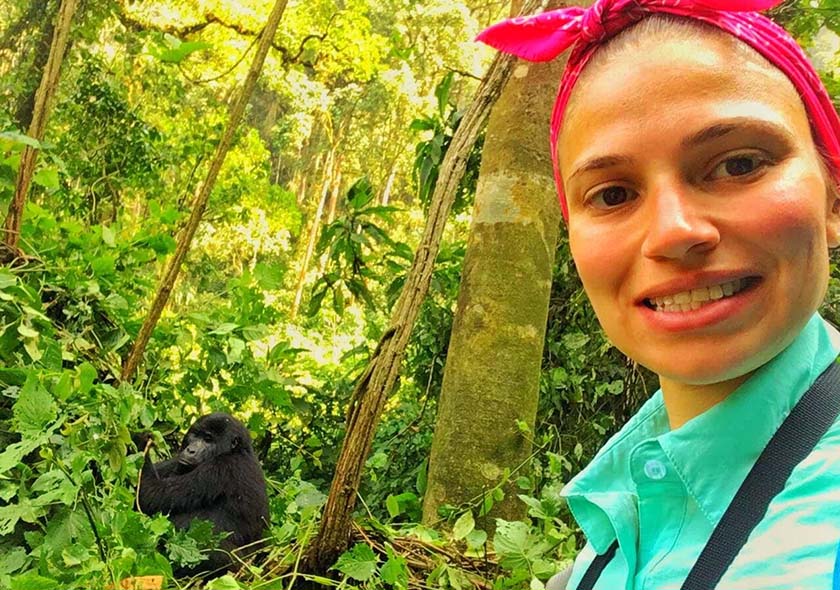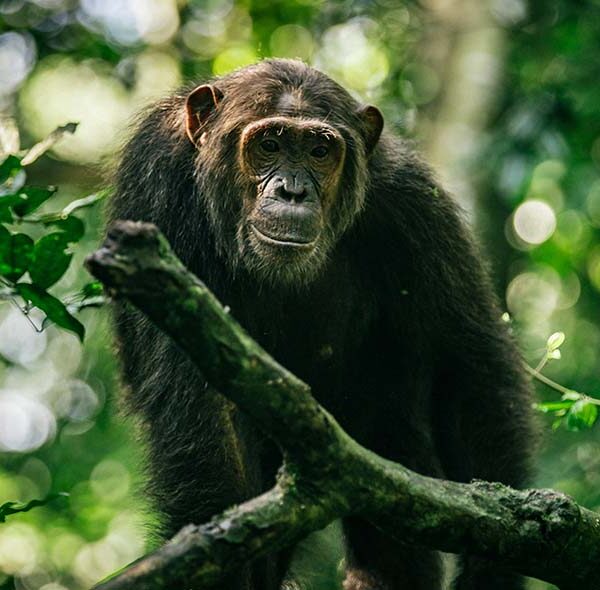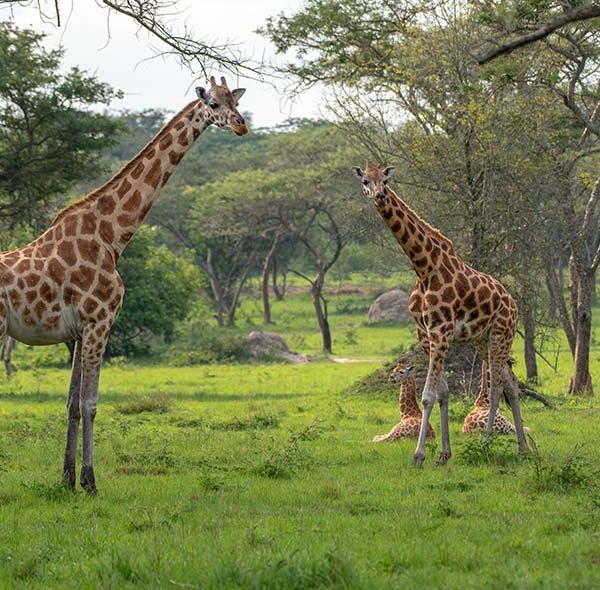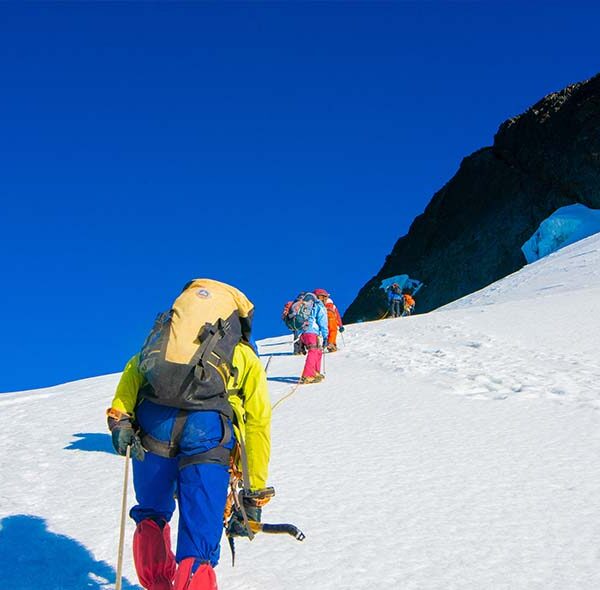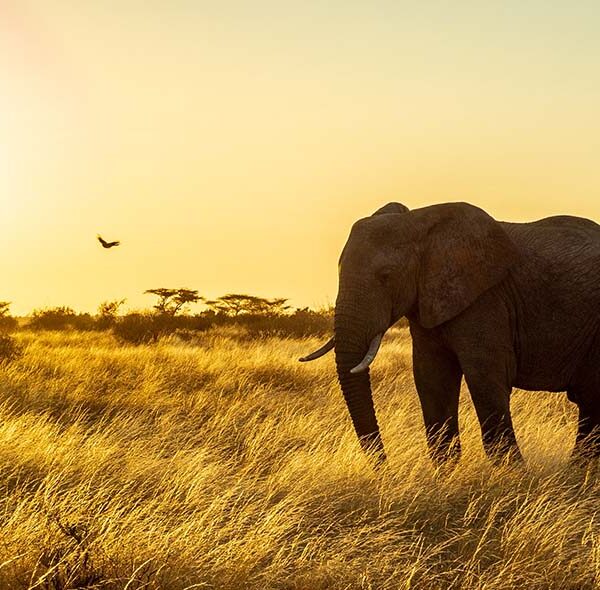10 Days Uganda Safari Active Travellers
From
Duration
Tour Type
Overview
There is no other country in Africa – like Uganda – the “Pearl of Africa.”
In 1908, in his book My African Journey, Sir Winston Churchill wrote:
“For magnificence, for variety of form and color, for profusion of brilliant life — bird, insect, reptile, beast — for vast scale — Uganda is truly “the Pearl of Africa”. The Kingdom of Uganda is a fairy tale. The scenery is different, the climate is different and most of all, the people are different from anything elsewhere to be seen in the whole range of Africa…”
From its source in Lake Victoria, the River Nile crosses the Rift Valley to give Uganda a dazzling range of unique habitats. Uganda’s resulting beauty, natural wonders and biodiversity have impressed generations of travelers. Visitors return for Uganda’s welcoming people and temperate climate. Uganda’s most coveted natural attractions include the endangered Mountain Gorilla, Chimpanzees and over 1,000 species of birds. Uganda’s diverse habitats have enthralled wildlife-watchers, and seasoned African Safari-goers, for decades.
Hikers and mountain climbers congregate in the Rwenzori Mountains as well as in Mgahinga Gorilla National Park, which also boasts three major peaks. Game and bird viewing is particularly popular in Uganda’s many national parks, and one of the special attractions is the tree-climbing lions of Queen Elizabeth National Park.
Yet there is so much more to Uganda: walking or quad bike safaris, mountain climbing and grade 5 white water rafting are a few of the adventure activities. Her culture of 52 tribes and their languages and dance set the country apart. A comparatively small country, Uganda has won many accolades including Lonely Planet number one destination to
Included/Exclude
- All budget/camping accommodation on Half Board (HB), Full Board (FB) or Bed and Breakfast (B&B) basis as quoted in the text
- Welcome dinner and Fare well dinner
- BBQ dinner experience prepared by the guide and clients
- A simple breakfast stop in nature in Queen Elizabeth National park
- 4x4WD pop roof tourist mini Vans or 4x4 coaster and fuel
- 1 English speaking tourist guide and 1 driver while in a coaster or An English speaking driver guide while in a van
- 1 gorilla permit per person
- -1 Chimpanzee permit pp
- -All local community activities
- Game drives
- Boat rides
- Local lunch at tinkas
- Bigodi swamp walk
- Visit the twin lakes- sundowner
- Local projects
- Entrance fees to the national parks
- All boat tours
- Taxes
- Free mineral water in the vehicle during the tour
- Visa fees
- International insurance
- Covid-19 CPR Test for departure and on arrival
- International flights
- All Drinks / alcoholic drinks
- Additional meals
- Tips, porters etc.
- Tips
- Activities not part of the described program
Tour Plan
On your arrival at Entebbe International Airport you will be met by our Umoja Motherland tours professional representative who will warmly greet you and transfer you to your Guesthouse. You will check into the Guest house and rest. You will have a group welcome dinner in the evening.
Optional activities if time permits:
- visit the Botanial gardens @ 15pp
- Bicycle cycling in Entebbe @30 pp,
Overnight at Green Valley Guest House
Meal plan (Breakfast and Dinner)
Activities:
- Welcome Dinner.
- Arrival
Wake up in the morning and have your breakfast, then your guide will drive you from Entebbe to Queen Elizabeth National park. With a stopover at the Equator
Set on the floor of the Rift Valley, with the (occasionally visible peaks of the) Rwenzori Mountains behind you. The landscape of northern Queen Elizabeth comprises dozens of ancient craters carved into gentle rolling hills. The Kazinga Channel lies in central Queen Elizabeth, its banks fertile with large mammals such as hippo, elephant and buffalo and over 600 bird species, more than any other national park in Uganda.
Check into the hotel and later head for your activities.
4-5hrs: The Kataara women project was started for the purpose to provide a source of livelihood for the women most of whom are widowed, promote conservation and also rally the community to protect the animals in the Queen Elizabeth National Park which is within their neighbourhood.
“The idea of making paper from elephant dung came from turning a difficult situation into an opportunity. This is because elephants walk into their gardens all the time, destroying crops and incensing the locals so they decided to get what they left in their gardens and make something productive, their dung into paper. The group also makes handicrafts, improved cook stoves and briquettes also made from a mixture of elephant dung and other materials which are all a source of income for the group. They also offer homestay tours and Coffee tour plus community walk.
Drive back to the lodge and have lunch.
Afternoon: Free time or optional: If time permits, nature walk at the lodge (20USD)
Evening: After this you will walk up to the twin lakes (7km walk) and enjoy the beautiful scenery of the lakes and if you get the chance you will watch the sunset too with a beer or soft drink and take pictures.
Wake up early in the morning, will start your morning game drive (3-4hr). Your breakfast will be packed for you and during the game drive you will take a break and enjoy a simple breakfast in nature as you listen to the birds sounds of nature. A popular route for the game drive is the Kasenyi sector, well-known for its lions that prey on Queen Elizabeth’s large population of Uganda Kob (antelope). If you are very lucky, you may spot a Giant Forest Hog, Africa’s largest pig. Keep your eyes peeled to spot an elusive leopard!
After your Safari, you will head to the lodge and have lunch. In the afternoon, you will take a boat for a water safari (~2hrs) on the Kazinga Channel at Mweya that connects the two lakes of Edward and George. This is likely to be a big highlight of your trip! The expert Uganda Wildlife Authority guides will identify many of the Channel’s 100 bird species and you’re likely to see African Skimmers, Great White Pelicans, Spoonbill and a number of Bee-eater species. Hippos wallow at the edge of the water, huge Nile crocodiles bask in the sun and elephants come down to drink. The Kazinga Channel boat ride is a brilliant opportunity to take some close-up wildlife shots.
Dinner in holiday
Today we will depart for Bwindi Impenetrable Forest from Queen Elizabeth National park. After you breakfast, you will embark on your enjoy to Rushaga a sector of Bwindi where you will spend two nights.
Bwindi Impenetrable Forest National Park is a UNESCO Natural World Heritage site and one of the richest biological and botanical regions in the world. The forest covers an area of 331 km² at the south-western edge of the western Rift Valley. Bwindi’s most-revered species are the approximately 400 wild Mountain Gorillas (2011 census) that make up half of the world population of these gentle apes.
After a few hours in the vehicle, you may enjoy an afternoon walk (1hrs) around the village of Rushaga (your home for two nights) and a chance to visit one of the handicraft shops or to meet the Batwa, the ancient forest-dwelling tribe.
Overnight at Rushaga Gorilla Haven lodge
You will be up early on the morning of your Gorilla Tracking for a good breakfast in preparation for the day’s physical activity. You will report for registration at the Uganda Wildlife Authority ranger station by 8 AM. After a briefing by the rangers, your gorilla trek will start. The trek usually takes between three and six hours so a reasonable degree of fitness is required, as well as a strong pair of walking boots or shoes.
The rangers will guide you through the village gardens and into the jungle-like forest. They will escort you through the sometimes thick bush, occasionally hacking the dense undergrowth with a machete as you search to locate the gorillas. The mountain gorillas are under 24 hour monitoring for their own safety, so you’re almost guaranteed to see them. The rangers monitor each gorilla family by keeping in close radio contact.
In part due to gorilla tourism, the population of gorillas is slowly increasing but the species remains critically endangered. Gorillas and humans share almost identical genetic material and their health must not be compromised by coming into contact with human diseases (via our food, for example). To reduce transmission of disease from humans to gorillas, you will also be advised to keep a distance of 7 metres from the gorillas.
Once you have located the gorilla family, you will be asked to leave all your belongings to one side, and approach the gentle giants, just with your camera. The guides will interpret the animals’ behaviour and advise on what you are watching. Females and their young, young males and even a dominant Silverback may be seen: feeding, playing, interacting with each other, or just sleeping! You will never forget your encounter with the gorillas. They will be quite curious to see you! You are allowed exactly one hour with the gorillas before returning to base.
The trek starts at Trekkers Hostel in Kyanjiki, 12 kilometres from Kasese past Kilembe. Best to start by 8.30am but can leave as late as 10am. You walk 2.2km to the UWA rangers post at 1,727metres. Here the rangers brief you on the days activities and rules of the National Park.
You can climb the ridge towards Samalira Camp (the first camp) where you stop for lunch at 2,570metres. The forests are untouched and carry a wide variety of trees and plants. Many bird species can be heard and seen in this rich environment. The first few kilometers climb steadily crossing several small streams and rivers through montane forest, with tall trees, thick undergrowth then we start climbing the ridge. The higher we climb the trees appear taller and straighter and it is common to see and hear many types of primates, echoing around the valleys.
Particularly around our lunch spot at 2,570m it is possible to see troops of 15 to 20 black and white Colobus monkeys or Blue monkeys as they dash through the trees loaded with natural fruits. A few hundred metres beyound the lunch spot, the bamboo zone commences and we climb up another half kilometres to a small cave which was previously used by poachers. Here we have a short rest before returning to the Rangers post and back to Kilembe. You will descend back meet your guide who will transfer you to Kibale. Overnight Kibale forest lodge
Breakfast, lunch, diner
This morning we will depart for Kibale forest National park. Along the way you will have the opportunity of stopping by a local food and fruit market and learn about the different foods Ugandans enjoy and also taste some fruits.
Later we drive to Kibale Forest National Park, in Western Uganda, an incredibly diverse forest that is home to over 13 species of primates including chimpanzee, red Colubus monkey, the rare L’Hoest monkey, blue monkey, grey-cheeked manga bey, black faced vervet monkeys, baboons, pottos and bushbabies. Cleverly constructed boardwalks lead you through Papyrus that towers above your head in Bigodi Wetlands Sanctuary, a few minutes’ drive from Kibale Forest. With over 130 bird species, multi colored butterflies, eight different types of primates and the rare, semi-aquatic Sitatunga (antelope), this is community tourism at its best. If time permits take a community and Bigodi swamp walk, bond with nature and learn about the different bird species and people’s ways of living. Enjoy the walk in nature.
After the walk return to the lodge for a BBQ experience with guide. And your BBQ day while interacting with the guide.
Overnight Kibale forest Lodge
Activities:
- Stop at local market by the road to try some fruits-roughly 20-30minutes
- Optional : Visit the Mpanga tea factory along the way to learn and experiment on tea picking in the tea farm and also learn where the black tea most Ugandans enjoy comes from @ $26pp. Roughly 2hrs
- 7-9 hr drive
- Then 1hr-1:1/2hrs community swamp walk.
- BBQ with the guide
After breakfast, it’s an early start to report to the ranger headquarters at 8 am in Kibale Forest National Park to track habituated Chimps. These engaging apes, our closest living relative, are great fun to watch as they play and fight in the fruiting trees. Your experience guides will introduce you to the different members of the chimp families, as well as the birds and plant life of the forest. The trails through the forest are generally easy to navigate and you will always be accompanied by Rangers.
Chance to see forest elephant – not guaranteed: The elusive forest elephant, smaller and hairier that its savannah counterpart, moves seasonally into areas of Kibale Forest. Occasionally other large mammals such as buffalo, giant forest hog and numerous antelope species can also be seen. Birders will be on the look-out for an incredible list of 335 bird species. Butterfly lovers and botanists will be impressed by equally long lists of rare and endemic forest species. You will have a local lunch at Tinka’s homestay. Enjoy Tinka’s stories and learn how he makes his local meals. Learn more about the tooro tribe and their live hoods.
Overnight Kibale forest Lodge
Wakeup very early in the morning for breakfast. Drive from Kibale to Entebbe. You will have lunch en-route. You have enjoy a group farewell dinner. If time permits you will visit a craft shop village and shopping or even visit Victoria shopping mall in Entebbe.
Overnight at Green Valley Guest House
Activities:
- Drive from Bwindi to Entebbe
- Equator stop
- Farewell Dinner
Wake up in the morning for breakfast. The driver will transfer you to the Airport in due time for your out bound flight.
Related Tours
6 Days Gorilla And Wildlife Women Safari| Uganda
Review Scores
Book Your Safari
Tour Information
Max Guests
Min Age
Tour Location
Languages Support
Last Minute Deals
Frequently Asked Questions
It is highly recommended to use an adapter. Electricity in Uganda is 220/240 volts, frequency is 50 Hz, with square pin plugs, plugs are type G.
It is also possible to use European plugs, if in doubt, ask local people how to use your charger.
Many camps have a limited power supply, but all are capable of recharging their electronics.
Please try to bring enough batteries for the photographic equipment
Visitors must respect the attitude of the local people towards photography, you can only take pictures if you have received permission from the “models” to do so. One should never attempt to take a photo against another person’s will. If necessary, your guide can help you negotiate terms beforehand.
Never take pictures of border posts, people in uniform, at airports or military installations.
During the safari, we recommend that each of your group bring their own pair of binoculars, although in our cars you will find a set of binoculars to share.
Being able to see animals even more closely with binoculars, the nuances of their fur, their colors, their feathers, makes it easier to see animals hidden by tall grass, animals hidden in the treetops, or submerged in the river, etc. Being able to have binoculars during the safari elevates the experience to another level of detail.
The first thing most visitors will notice is that East Africa is extremely friendly and helpful people.
However, we still recommend that visitors take care of their valuables (especially money). In camps and hotels, always leave money or your credit card in the safe deposit boxes provided (either in the room or at the reception). We cannot be held responsible for any loss while on safari.
Arusha is a big city, with pickpockets and tricksters as in all cities, so we recommend that visitors do not walk around with flashy jewelry or with an open bag. Do not walk around Arusha at night.
